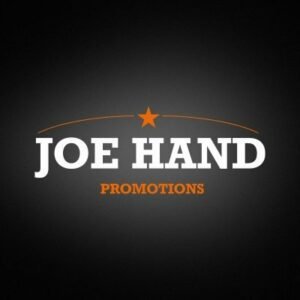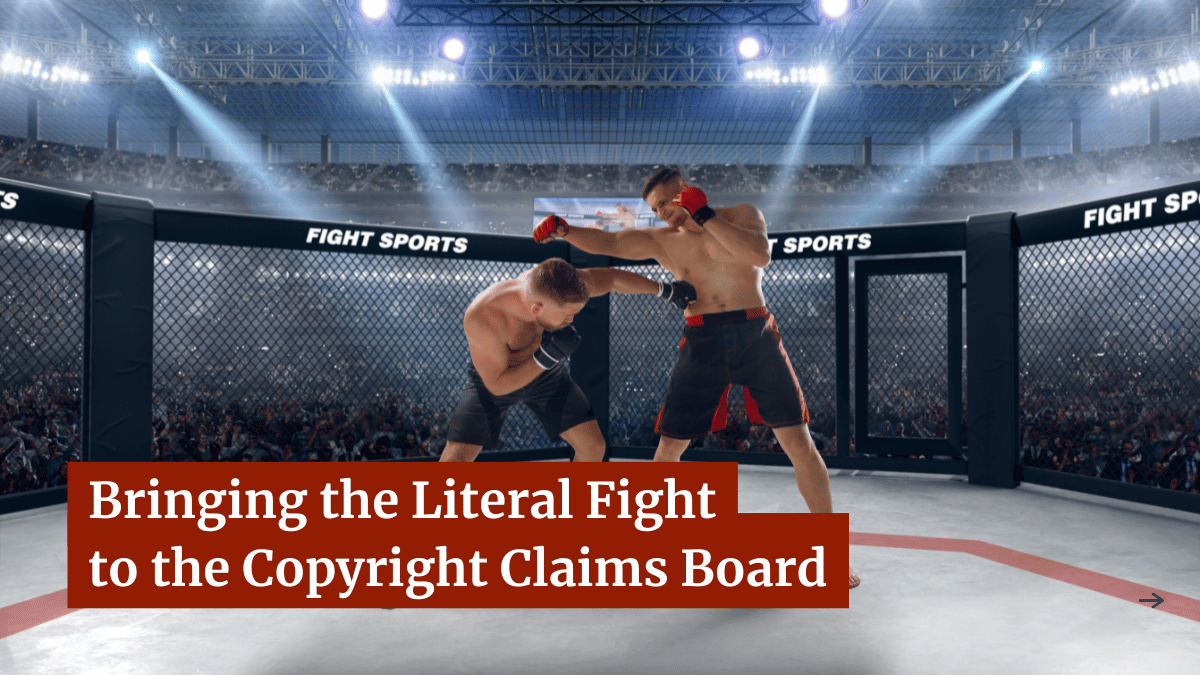Meet Joe Hand Promotions: The Most Frequent CCB Filer

If you don’t own a bar, restaurant or other public venue, it’s likely you’ve never heard of Joe Hand Promotions (JHP).
However, if you do run such a space and have wanted to show a boxing, UFC, WWE or AEW event to your patrons, it’s likely that you either worked with them or heard from them.
That’s because Joe Hand Promotions is the exclusive company to offer licenses for pay-per-view sporting events. So, whether you’re a theater wanting to sell tickets to a livestream boxing event or a bar that would like to air the next AEW pay-per-view for patrons, they’re the company that negotiates and provides the license.
Those licenses range from a few hundred dollars for small venues to several thousand dollars for larger ones. The fee is always many times greater than the cost to watch the event at home, which is usually between $50-$100, or is available through a streaming service.
However, not every place pays for that license. Some owners aren’t aware that they need a commercial license to show the event, others do know and simply hope to not get caught. Either way, every event usually has at least a handful of venues that showed it without a license.
In response to that, Joe Hand Promotions has a long history of taking legal action against venues who, according to them, hosted the event in a commercial establishment without the appropriate license.
Stories about their legal campaign go back more than 20 years, and they have been heavily criticized for their aggressive tactics. However, they’ve also been very successful, securing countless settlements from bars, restaurants, gyms and other venues for showcasing events without a license.
However, over the past two years, JHP has added a new tool to its arsenal: The Copyright Claims Board (CCB).
Since the CCB opened its doors in June 2022, JHP has filed 26 different cases with the CCB. That means it has filed more than 6% of the 417 cases filed with the CCB as of this writing.
This makes them by far the most prolific filer of CCB cases since the board opened.
While that doesn’t make JHP a copyright troll by any stretch, it does make their choice to heavily use the CCB one worth examining. It’s an interesting shift in a decades-old strategy that comes with its own risks and rewards.
Note: I reached out to JHP for comment on this story and did not receive a reply. As such, all information is gleaned from news articles and public records.
Why Use the CCB?
JHP is a company that has never been shy about using the courts to target alleged infringers. And, to be clear, they haven’t stopped filing cases with regular courts.
Following a significant appeals court victory in September 2022, the company filed another round of lawsuits in November of that year.
However, they have pivoted a significant portion of their legal campaign to the CCB, and they have been very active the whole time there. They filed their first case one month after the CCB opened and filed their latest case in March.
The cases are all virtually identical and use the same law firm, Jekielek & Janis. They all target small to medium-sized businesses that they allege viewed events at their business. Much of the verbiage is the same, with only the information about the respondents and the event changing each time.
However, this plays into the biggest benefit of the CCB for JHP: Cost Savings. As we discussed previously, the cost of the CCB is significantly lower than the cost of filing a full lawsuit. Though JHP uses a law firm, the costs are likely a small fraction of the costs of a federal lawsuit. Considering that, in one case, they said they had over $5,000 in fees in a dispute that was being settled shortly after filing.
The downside is that JHP cannot claim as high of damages at the CCB. The CCB is capped at $15,000 per work and $30,000 per case. However, if one looks at cases where settlements were reached with JHP and the amounts are known, they were often in this range. Though JHP has routinely sought much higher damages, that’s rarely been the outcome when the dust settles.
In short, the CCB is faster, less expensive and though the damages are lower, it’s still in the range that they routinely settle cases for. As such, the CCB is a natural fit for JHP.
So, How is it Going?
Of the cases that JHP has filed, none have been resolved. However, that’s very much to be expected. The CCB only decided its first case in March and that one started out in federal court and was moved to the CCB, with many formalities already handled.
To that end, JHP is faring much better than most claimants at the CCB. As we discussed back in November 2022, a large percentage of claimants have had their cases dismissed, most commonly due to filing non-compliant claims. These are often due to simple mistakes that could have been easily avoided but were not.
To that end, that’s one of the advantages of JHP’s boilerplate approach to the CCB. None of their cases have met any opposition from the board at all. They’ve all moved straight to the phase where JCB is told to serve the paperwork to the respondents. That, in turn, is the phase where most of their cases are at, with service either being completed or just having been completed.
However, seven of their cases have moved past that. With service concluded and the respondents not opting out, those seven cases have moved to the active phase, with the second filing fee being paid and the board setting a hearing schedule.
Of those cases, the respondent has not answered in six of them, and those cases have moved to the default phase. In the last one, the responded did file a response disputing the facts of the case. That case, however, is on pause pending a settlement.
In the end, it appears the respondents are neither opting out of the cases involving JHP nor appearing, making it important to wait and see how the CCB handles those case and what the outcomes of them are, both at the CCB and when trying to recover any damages.
But, as challenging as these outcomes are for JHP, they are still faring better than most claimants, especially those who attempt to file the claims themselves.
Bottom Line
One thing I have been careful about with this article is to make it clear that JHP is not a copyright troll. Working from my own definition of a copyright troll, JHP fails to meet the criteria on at least two counts. First, they have significant interest in legitimately licensing the content as it is their primary business and their legal campaign is not likely a major source of revenue for them.
They are an exclusive rightsholder that faces mass infringement, and, under the law, the only recourse to mass infringement is mass litigation.
I won’t disagree that they are an aggressive litigant, and I also understand why many targeted by them feel that the company is “punching down” or that their actions shouldn’t be illegal. However, the fact remains that their arguments are legally sound, as we saw in the appeals court, and they are representing a legitimate copyright interest.
So, while I understand why they are controversial, and I may personally think a shift in tactics could be beneficial in some cases, they aren’t a copyright troll in my eyes.
In the end, they’re going to be an interesting test case for the CCB and its effectiveness. Their cases are very well filed, their arguments are relatively straightforward, and they are a nearly perfect application of the CCB from the perspective of damages.
If they feel that the CCB is worth it, then it’s likely that the CCB is meeting the needs it was intended to serve. Any case that they file with the CCB is, most likely, one not filed in a federal court, which was one of the goals of the CCB, to provide an alternative to an expensive and time-consuming federal lawsuit.
However, if they eventually do decide that the CCB isn’t worthwhile, it may be a sign that the board needs to be adjusted.
After all, if they can’t gain much benefit from the CCB, what hope does a layperson have?
Want to Reuse or Republish this Content?
If you want to feature this article in your site, classroom or elsewhere, just let us know! We usually grant permission within 24 hours.
